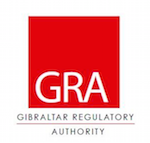The report relates to the results of two privacy awareness surveys carried out in schools in Gibraltar during the 2019/20 academic year.
One of the surveys was aimed at year 5 students, whilst the other was aimed at years 7, 9 and 11 students. The surveys examined the relationship between the use of new digital technology and privacy matters. This initiative forms part of the Information Commissioner’s awareness-raising programme for schools, conducted in cooperation with the Department of Education.
The report details the results from this year’s surveys and analyses the information gathered by comparing the results to those collated from previous years, where available.
In doing so, the Commissioner’s office says it is able to identify any key changes or behavioural trends in privacy practices amongst students in Gibraltar when using digital technology, particularly relating to Social Networking Sites. The report also features additional analysis due to new questions which focus on online platforms such as YouTube and gaming consoles, an area of concern highlighted in last year’s report.
A total of 1421 students (725 males and 696 females) between the ages of 9 and 16 years took part in this year’s surveys, which were carried out between November 2019 and February 2020. Some of the key findings are summarised in the following –
1. All year 7, 9 and 11 students surveyed use SNS;
2. SNS is used mostly for private messaging and its use grows as students get older;
3. Use of privacy controls for students in year 7, 9 and 11 has increased. A shift in the right direction;
4. Risk to privacy from ‘media rich’ SNS continues;
5. The number of year 7, 9 and 11 students that reveal information about others without their consent has decreased;
6. The use of security features such as a PIN to protect access to mobile devices continues to increase;
7. Over a quarter of year 5 students who own a mobile device are unaware of permissions granted to mobile apps, including access to their personal data;
8. Younger students seek consent to install new apps on mobile devices;
9. The combined percentage of students who are aware of privacy controls is moderately high. However, approximately a third of students do not use them.
The Commissioner welcomes the slight improvements in privacy practices, which in turn may protect individuals from privacy-related risks, but some concerns remain.
The continuous and increasing use of SNS demands that constant efforts are made in relation to raising privacy awareness. For this reason, The Commissioner feels it is appropriate and necessary to continue monitoring these user habits and to help the younger generations understand the importance of controlling their privacy.
The full report is available to download from the following webpage:
